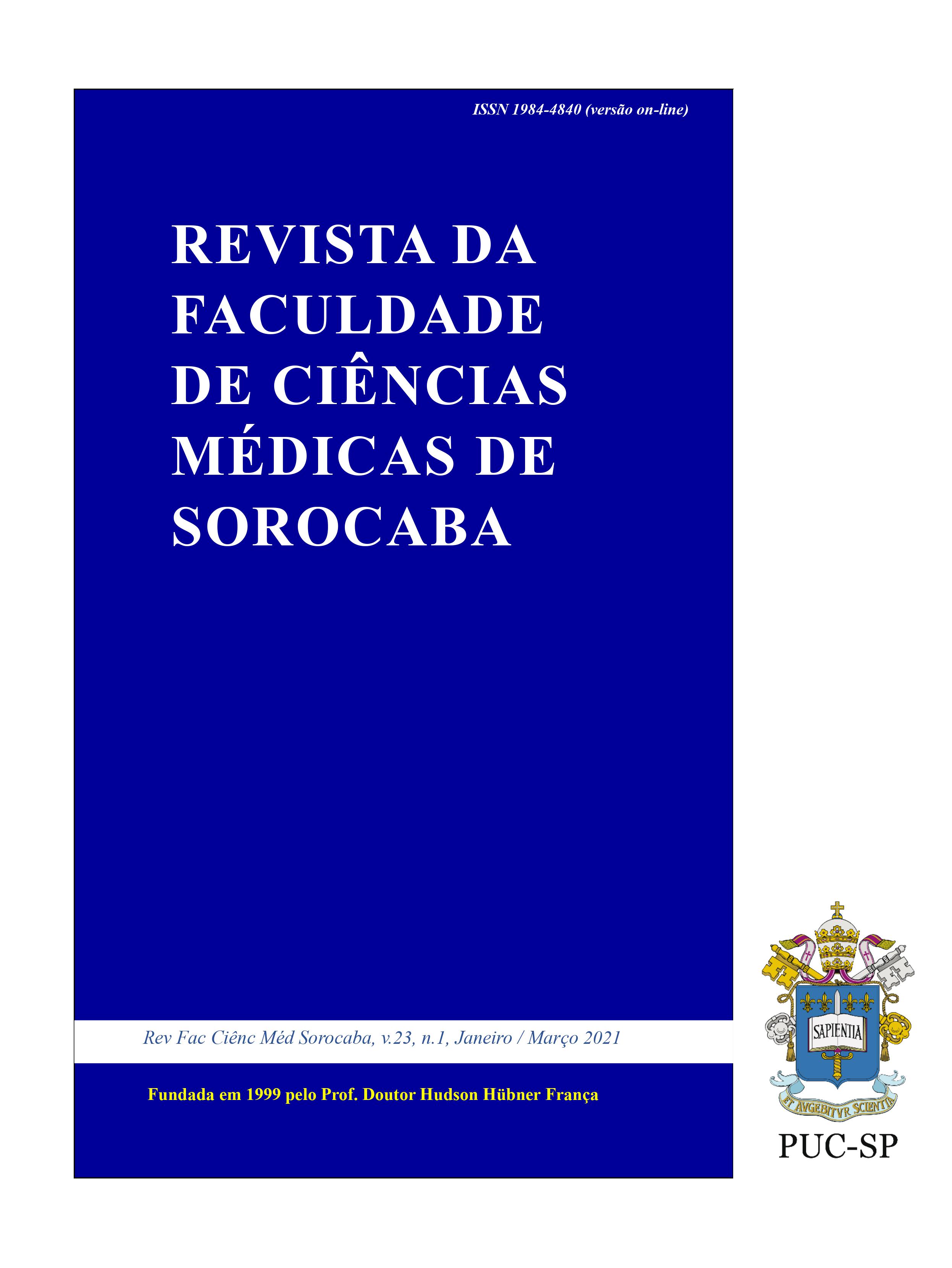Basic knowledge on Human Papillomavirus and its complications among women between 18 and 40 years old
DOI:
https://doi.org/10.23925/1984-4840.2021v23i1a6Keywords:
Papillomaviridae, Uterine Cervical Neoplasms, Sexually Transmitted Diseases, Health Knowledge, Attitudes, Practice, WomenAbstract
Objective: In the world it is estimated that 291 million women are carriers of Human Papillomavirus (HPV), and its importance is due to the association with cervical cancer. Thus, it is necessary to understand the level of knowledge of women who are at risk of developing the disease. Method: For this, a questionnaire was applied to women between 18 and 40 years old. Results: Most women (97.6%) know that HPV is related to cancer and 91.9% responded that HPV is a risk factor for cancer. As for the clinical manifestations, 60.3% had partially correct answers, what shows satisfactory knowledge on the subject. Of those interviewed, 79.8% also are acquainted to the HPV detection method. Conclusion: It is concluded that, despite the main information on the subject being sedimented, it is possible to perceive a great insecurity of the interviewees regarding their own knowledge. These data reinforce the need to build new articles and campaigns on the subject as a mean to increase the dissemination of information associating HPV with cancer in order to consolidate such knowledge.
References
FEBRASGO. HPV [Internet]. 2017. Disponível em: https://www.febrasgo.org.br/pt/noticias/item/120-hpv
Brasil. Ministério da Saúde. Campanha amplia público-alvo da vacinação contra HPV [Internet]. 2014. Disponível em: http://www.brasil.gov.br/noticias/saude/2014/01/campanha-amplia-publico-alvo-de-vacinacao-contra-hpv
Brasil. Ministério da Saúde. Secretaria de Vigilância em Saúde. Departamento de Vigilância das Doenças Transmissíveis. Coordenação Geral do Programa Nacional de Controle da Tuberculose. Brasília (DF): Ministério da Saúde; 2014.
Brasil. Cartilha profissionais de saúde HPV. Brasília (DF): Ministério da Saúde; 2014.
Urbanetz A. Ginecologia e Obstetrícia: FEBRASGO para o médico residente. Rio de Janeiro: FEBRASGO; 2016.
Einstein MH, Schiller JT, Viscidi RP, Strickler HD, Coursaget P, Tan T, et al. Clinician’s guide to human papillomavirus immunology: knowns and unknowns. Lancet Infect Dis. 2009;9(6):347–56. doi: http://doi.org/10.1016/S1473-3099(09)70108-2
Castellsagué X. Natural history and epidemiology of HPV infection and cervical cancer. Gynecol Oncol. 2008;110(3):S4–7. doi: https://doi.org/10.1016/j.ygyno.2008.07.045
Berek J. Novak Tratado de Ginecologia. 15ª ed. Rio de Janeiro: Guanabara-Koogan; 2014.
Osis MJD, Duarte GA, Sousa MH. SUS users’ knowledge of and attitude to HPV virus and vaccines available in Brazil. Rev Saude Publica. 2014;48(1):123–33. doi: 10.1590/S0034-8910.2014048005026
Downloads
Published
How to Cite
License
Copyright (c) 2022 Revista da Faculdade de Ciências Médicas de Sorocaba

This work is licensed under a Creative Commons Attribution-NonCommercial 4.0 International License.
Os autores no momento da submissão transferem os direitos autorais, assim, os manuscritos publicados passam a ser propriedade da revista.
O conteúdo do periódico está licenciado sob uma Licença Creative Commons 4.0, esta licença permite o livre acesso imediato ao trabalho e que qualquer usuário leia, baixe, copie, distribua, imprima, pesquise ou vincule aos textos completos dos artigos, rastreando-os para indexação, passá-los como dados para o software, ou usá-los para qualquer outra finalidade legal.

 Este obra está licenciada com uma Licença
Este obra está licenciada com uma Licença 